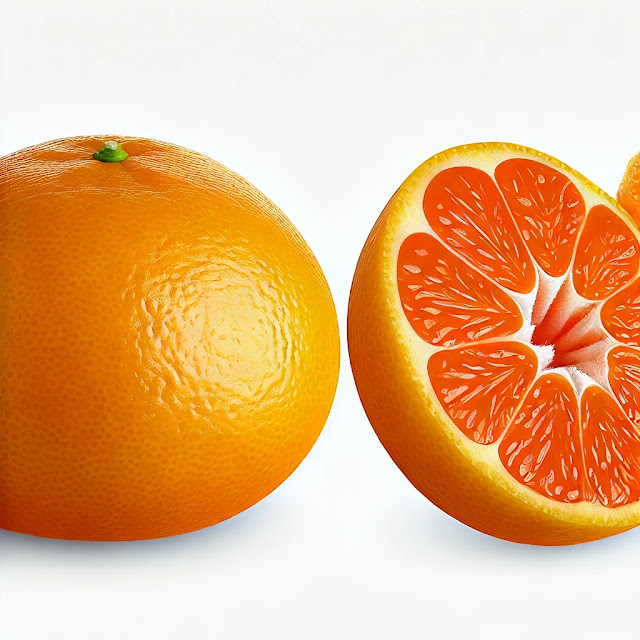Bright and Zesty: Exploring the Health Benefits and Versatility of Lemons
Overview:
Lemons, with their vibrant yellow color and tart flavor, are one of the most recognizable citrus fruits in the world. Known for their tangy taste, lemons are not only a refreshing addition to drinks and dishes but also a powerhouse of nutrients. From boosting your immune system to enhancing the flavor of any meal, lemons are a must-have ingredient in every kitchen.
Calories and Key Nutrients (per 100g):
Lemons are incredibly low in calories, providing only 29 calories per 100g. They are an excellent source of Vitamin C, covering over 70% of the daily recommended intake per 100g serving. Lemons also contain small amounts of fiber, Vitamin B6, and potassium. In comparison to fruits like oranges (47 calories per 100g) and grapefruits (42 calories per 100g), lemons have fewer calories but offer a concentrated amount of Vitamin C, which is crucial for boosting immunity and supporting skin health.
Health Benefits:
Lemons are packed with antioxidants that help protect the body from oxidative stress and inflammation. The high levels of Vitamin C in lemons are particularly beneficial for boosting the immune system, preventing colds, and improving skin health by promoting collagen production. Lemons also aid in digestion, as their acidity helps stimulate the production of digestive enzymes. Some studies suggest that drinking lemon water can help with weight management, as it boosts metabolism and increases hydration.
Proper Consumption Methods:
While biting into a lemon directly may be too sour for most, lemons can be used in a variety of ways to enjoy their health benefits. A simple way to incorporate lemons into your diet is by adding lemon juice to water or tea. You can also use lemon zest and juice to flavor salads, marinades, or baked goods. Additionally, lemons can be used to enhance the flavor of seafood, pasta dishes, and roasted vegetables.
Delicious Ways to Enjoy (Recipe):
Try making a simple and refreshing Lemonade by combining fresh lemon juice, water, and a touch of honey or sugar. Add some mint leaves and ice for a cool, hydrating drink. For a savory option, use lemons to create a lemon garlic marinade for grilled chicken or fish, which adds a zesty flavor while keeping the dish light and healthy.
Consumption Warnings:
Although lemons are generally safe to consume, their acidity can cause dental erosion if consumed in large amounts or if lemon juice is consumed frequently in its pure form. It’s advisable to dilute lemon juice in water and use a straw to minimize contact with teeth. Additionally, people with acid reflux or sensitive stomachs should consume lemons in moderation, as the acidity can aggravate symptoms.
Comparison with Other Fruits:
Compared to other citrus fruits like oranges or limes, lemons are lower in calories and have a more intense flavor. While oranges are sweeter and offer more fiber, lemons stand out for their ability to enhance the flavor of both sweet and savory dishes. Limes, which are also highly acidic, have a similar nutritional profile, but lemons offer a slightly higher concentration of Vitamin C.
Who Should Eat and Who Should Avoid:
Lemons are great for people looking to boost immunity or those needing hydration support. Athletes can benefit from lemons, especially when added to water to enhance hydration and replace lost electrolytes. However, individuals with stomach ulcers or sensitive teeth should avoid consuming lemons in large quantities, as the acidity can exacerbate symptoms.
Fun Facts:
Did you know that lemons were once so valuable in Europe that they were given as gifts to royalty? Lemons were used by sailors during long voyages to prevent scurvy, a disease caused by a deficiency of Vitamin C. Additionally, the lemon tree is an evergreen, meaning it produces fruit year-round, making lemons available in all seasons.
Lemon in Different Cultures:
In Italy, lemons are the key ingredient in Limoncello, a popular lemon liqueur made from lemon zest, sugar, and alcohol. In India, lemons are often used in pickles or as a souring agent in curries. In Morocco, preserved lemons are a staple in tagines and other traditional dishes, where their fermented, tangy flavor enhances the richness of the meal.
Research Findings on Lemons:
Recent studies have shown that lemons may have anti-cancer properties due to their high content of flavonoids and limonoids, which have been shown to inhibit cancer cell growth. Additionally, lemon juice is known to increase the absorption of iron from plant-based foods, making it beneficial for individuals looking to prevent anemia.
Additional Tips:
For a quick natural cleaning solution, mix lemon juice with baking soda to create a paste that can clean and deodorize kitchen surfaces. You can also use lemon juice as a natural hair lightener by applying it to your hair before sun exposure. Lemons are not only good for your body but also for your home!










Comments
Post a Comment